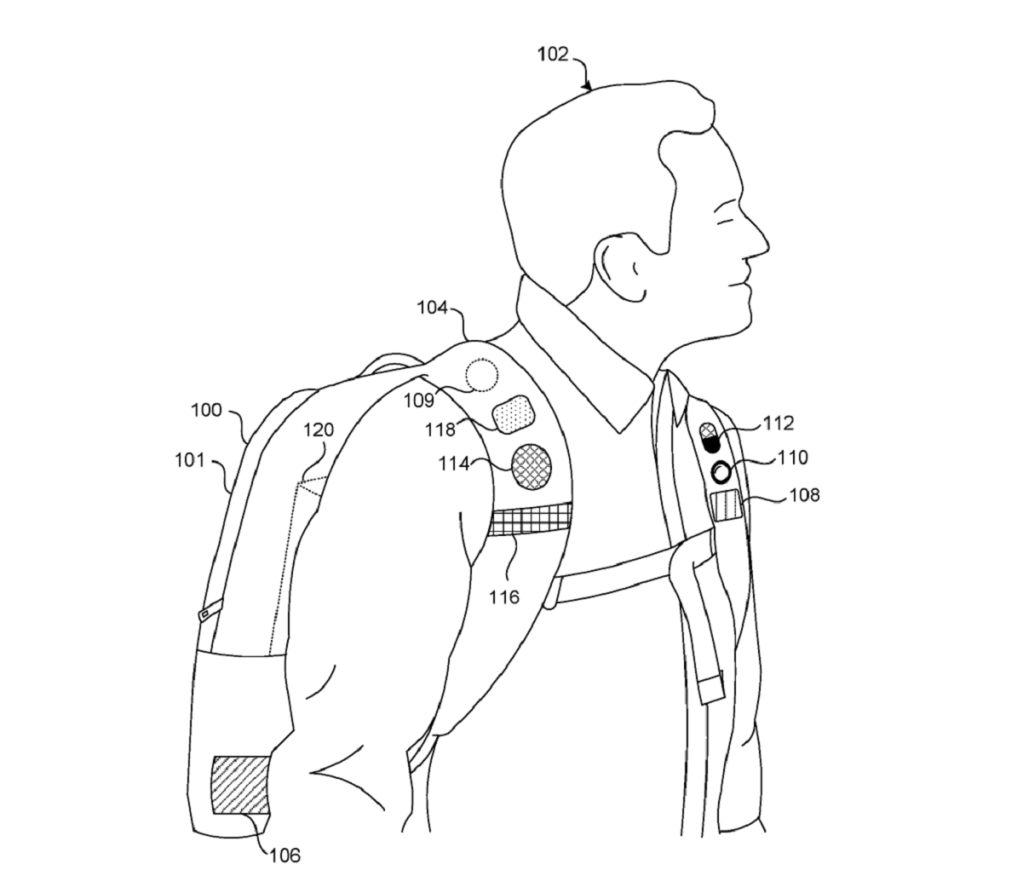We’ve had AI assistants in smart speakers, phones, TVs, and even cars. But in your backpack? This is new territory, and Microsoft is staking out a claim via a new patent.
As spotted by MSPowerUser, the patent in question was filed on May 2. “The description relates to artificial intelligence assisted wearables, such as backpacks,” the patent reads. “An example backpack may include sensors, such as a microphone and a camera. The backpack may receive a contextual voice command from a user.”
The patent goes on to show a rather jaunty skier considering going off trail, and the backpack advising him not to. The patent also shows a number of sensors, including a camera and a microphone, embedded in the straps of the backpack. It’s a smart idea, given that the location of the sensors would naturally “point” to what’s in front of the user. Like many AI services, Microsoft suggests that the AI backpack would connect to the cloud, passing information back and forth and informing the user.
Take a step back, though, and the question suggests itself: Why? We live in a world of fitness bands and smartwatches and, well, phones, with sensors galore built in and persistent connections to the cloud, assuming there’s a cellular connection. It doesn’t seem out of the bounds of possibility that a backpack manufacturer could include an emergency satellite connection in case of an emergency in the backcountry, for example, as the Apple iPhone does. And yes, there’s the convenience factor of a skier not needing to remove his gloves, fish out his phone, and snap a picture of the trail in question. Still.
Let’s face it: Microsoft hasn’t had much luck in wearables. The Microsoft Band and Microsoft Band 2 were arguably ahead of their time, debuting almost a decade ago alongside the first iterations of Google’s Wear OS and the LG G Watch and Samsung’s Gear Live. To be fair, both platforms struggled at first until the Apple Watch debut in 2015 gave the platform legitimacy. Still, about a decade later, the Apple Watch and the Android ecosystem of watches live on; Microsoft discontinued the Band in 2016 and offered refunds in 2019. Though clunky, the Band platform offered both superb fitness tracking (including sleep and even an altimeter sensor for stair climbing) as well as integration with Microsoft’s Office apps.
And let’s face it: Microsoft hasn’t had much luck in phones. After struggling to find a market for its Lumia and Windows 10 Mobile platforms, Microsoft killed Windows 10 Mobile in 2019.
And let’s face it (you get the idea): Microsoft hasn’t had much luck in AI assistants, either. Microsoft’s partnership with Harman Kardon for the Invoke smart speaker died in 2021, as the company pulled support for its Cortana AI assistant. In Windows, Microsoft moved from making Cortana its flagship app for Windows 10 to migrating it to a dumb app in Windows 11 to unceremoniously killing Cortana this summer.
What this all means, then, is that there are very few products and applications that Microsoft hasn’t tried putting AI into, without later giving up on the whole thing. Backpacks? Sure, why not? Patents being patents, there’s absolutely no guarantee that you’ll see a Surface AI backpack ever. But why shouldn’t Microsoft try it out?


